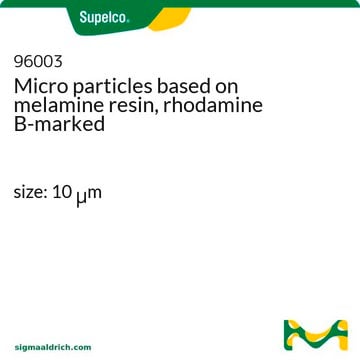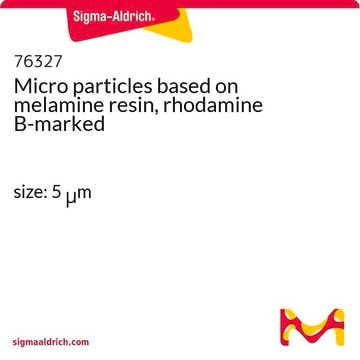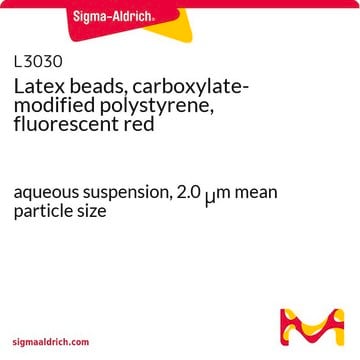90287
Micro particles based on melamine resin, carboxylate-modified, FITC-marked
analytical standard, size: 10 μm
Synonym(s):
Melamine-formaldehyde resin
About This Item
Recommended Products
grade
analytical standard
Quality Level
form
aqueous suspension
particles
concentration
2.5% (solids)
surface coverage
reactive groups (COOH) >0.1 mmol/g polymer
particle size
10 μm std dev <0.3 μm, coeff var <3%
fluorescence
λex 490 nm; λem 525
application(s)
glass & ceramic
industrial qc
pharmaceutical
format
neat
Looking for similar products? Visit Product Comparison Guide
Related Categories
Analysis Note
Storage Class Code
10 - Combustible liquids
WGK
WGK 3
Flash Point(F)
Not applicable
Flash Point(C)
Not applicable
Personal Protective Equipment
Choose from one of the most recent versions:
Already Own This Product?
Find documentation for the products that you have recently purchased in the Document Library.
Articles
Fluorescently labeled microparticles are useful as standards in flow cytometry, confocal laser scanning microscopy, and with light scattering instruments..
Our team of scientists has experience in all areas of research including Life Science, Material Science, Chemical Synthesis, Chromatography, Analytical and many others.
Contact Technical Service






